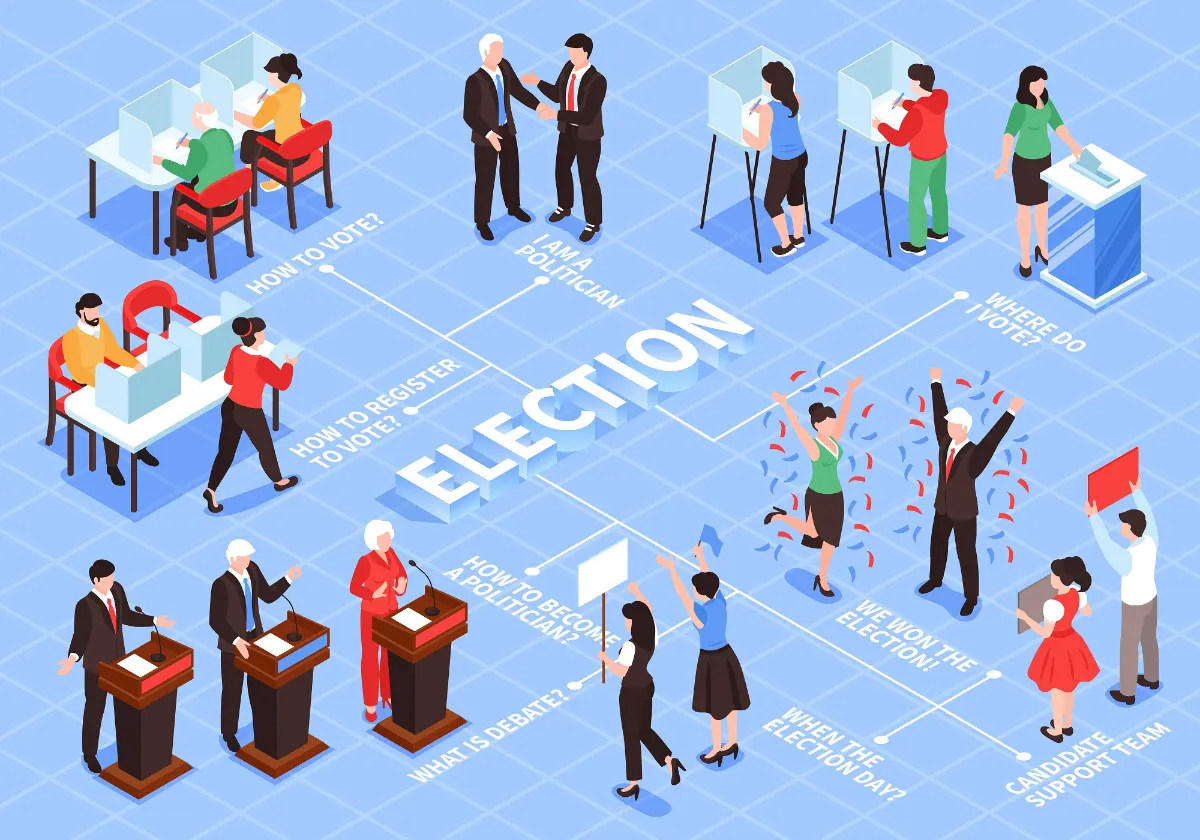General elections are an essential part of any democratic society. They not only provide a platform for citizens to voice their opinions but also allow them to actively participate in shaping the future of their nation. However, the success of any election hinges upon the transparency with which it is conducted. Transparency ensures openness, fairness, and credibility throughout the entire electoral process. In this article, we will delve into various aspects of promoting transparency in general elections and explore how it enhances the democratic process.
Ensuring Openness and Fairness Through Democracy
At the heart of any transparent election system lies the principle of democracy. Democracy empowers citizens by giving them the right to choose their representatives freely and fairly. It ensures that every eligible voter has an equal opportunity to cast their ballot without interference or prejudice. By upholding democratic values, we create an environment that fosters trust, legitimacy, and active participation in the electoral process.
Transparency in general elections not only includes the act of voting but also encompasses the entire electoral cycle. This includes registration, campaign funding, candidate selection, and the counting and announcement of results. By promoting transparency at every step, we build a system that is accountable, inclusive, and reflective of the will of the people.
Exploring the Benefits of a Transparent Election System
A transparent election system brings forth a range of benefits that extend beyond the act of voting itself. It fosters public trust in the electoral process, leading to higher voter turnout and increased political engagement. When citizens believe that their votes count and that the process is fair, they are more likely to actively participate in future elections.
Moreover, transparency in general elections acts as an effective deterrent against corruption and electoral fraud. By making the process open and accountable, we mitigate the risks of illegitimate practices such as vote buying, voter suppression, or tampering with ballot boxes. This, in turn, strengthens the overall integrity of the democratic system and enhances public confidence in the electoral outcomes.

Establishing a Level Playing Field for All Candidates
Transparency in general elections plays a pivotal role in creating a level playing field for all candidates. It ensures that no individual or party has an unfair advantage over their contenders. This principle is particularly crucial in reducing the influence of money in politics.
By mandating the disclosure of campaign finances, we strip away the veil of secrecy surrounding political funding. This allows voters to make informed decisions and reduces the potential for corruption. When citizens can scrutinize the financial contributions made to candidates objectively, they are better equipped to gauge their interests, allegiances, and potential conflicts of interest. This transparency holds politicians accountable and leads to a more informed electorate.
Strengthening the Democratic Process Through Transparency
Transparency is not just a means to an end; it is a fundamental part of a healthy democracy. It helps protect individuals’ rights and ensures that decisions made on behalf of the people are done so with integrity and fairness.
Moreover, transparency in general elections helps build public trust in democratic institutions. When citizens see that their voices are heard, their votes are counted, and their concerns are addressed, they become more invested in the democratic process. This, in turn, strengthens the legitimacy of the elected government and promotes stability and social cohesion.
Examining the Role of Technology in Election Transparency
The advancement of technology has revolutionized various aspects of our lives, and general elections are no exception. Technology has the potential to enhance transparency by automating processes, reducing human error, and facilitating access to information.
For instance, digital voter registration systems can streamline the registration process, minimize errors, and improve the accuracy of voter rolls. Electronic voting machines offer greater transparency by generating auditable records, ensuring the integrity of the voting process. Similarly, online platforms and social media can provide voters with access to unbiased information, enabling them to make informed decisions.
However, it is crucial to ensure that technological advancements do not exclude certain segments of society. Efforts must be made to bridge the digital divide and ensure equitable access to technology to prevent the disenfranchisement of marginalized communities.
Harnessing the Power of Citizen Engagement to Enhance Transparency
Transparency cannot be achieved in isolation. It requires active participation and engagement from citizens themselves. When citizens are well-informed, involved, and encouraged to take part in the electoral process, the benefits of transparency are amplified.
Engaging citizens can be done through various means, such as public awareness campaigns, civic education programs, and the promotion of citizen-led election monitoring initiatives. By empowering individuals with knowledge and tools to observe, report, and address any irregularities during elections, we create a powerful network of watchdogs that ensures accountability and transparency.

Best Practices for Enhancing Transparency in General Elections
While the importance of transparency in general elections is acknowledged worldwide, each country faces unique challenges and must adopt best practices accordingly. Some key practices that can enhance transparency include:
- Creating independent election management bodies that operate with integrity and impartiality.
- Publishing comprehensive electoral laws and regulations, ensuring they are easily accessible to all.
- Implementing robust mechanisms for campaign finance disclosure and public scrutiny.
- Providing transparent and secure procedures for voter registration, identification, and counting of ballots.
- Establishing an effective system for complaints and redressal of issues related to elections.
By implementing these best practices, societies can foster an environment that upholds the principles of transparency, fairness, and accountability throughout the electoral process.
Overcoming Challenges and Obstacles to Transparency in Elections
While promoting transparency in general elections is crucial, it is not without its challenges. Common obstacles include lack of financial resources, political interference, logistical difficulties, and resistance to change.
To overcome these challenges, it is essential for governments, civil society organizations, and international bodies to work hand in hand. By pooling resources, sharing expertise, and fostering dialogue, we can collectively address these obstacles and make significant progress towards more transparent and inclusive elections.
It is important to remember that the journey towards transparency is ongoing and requires continuous effort and vigilance. However, the rewards are worth it, as transparency in general elections strengthens democracy, enhances legitimacy, and ensures citizen empowerment.
Conclusion
General elections are the pinnacle of democracy, and their transparency is a cornerstone of a thriving society. By promoting openness, fairness, and accountability throughout the electoral process, we empower citizens to actively participate in shaping their nation’s future. Through technology, citizen engagement, and best practices, we can overcome challenges and establish transparent election systems that uphold democratic values. It is a collective responsibility to ensure that the democratic process remains a beacon of hope and empowerment for generations to come.

